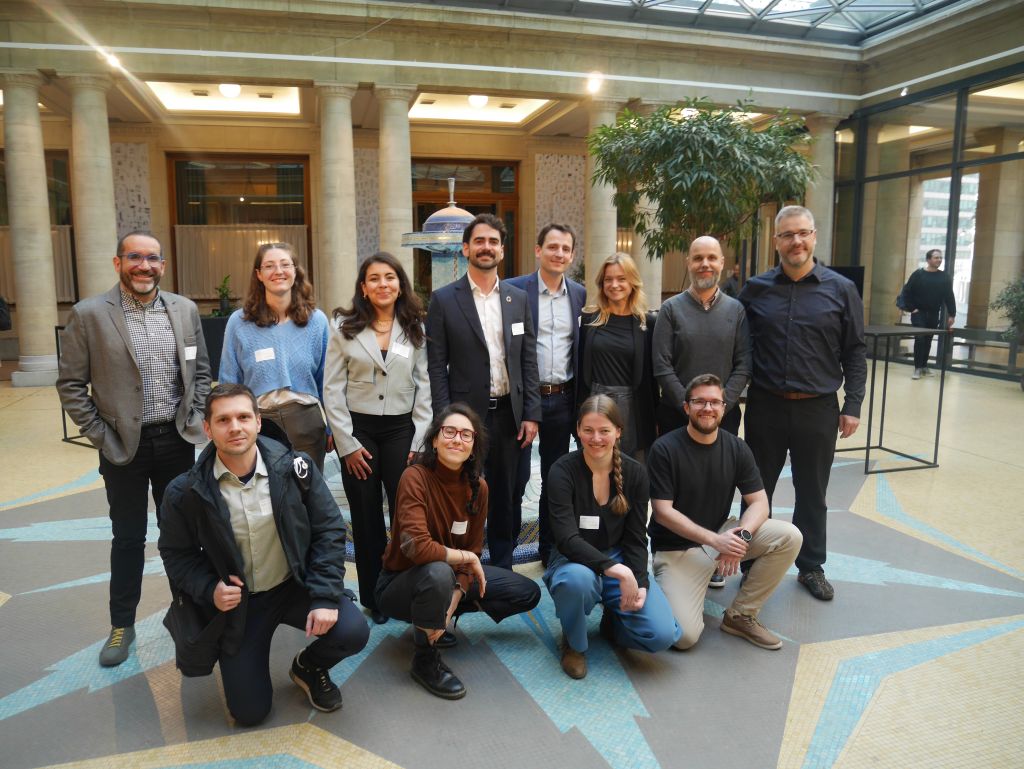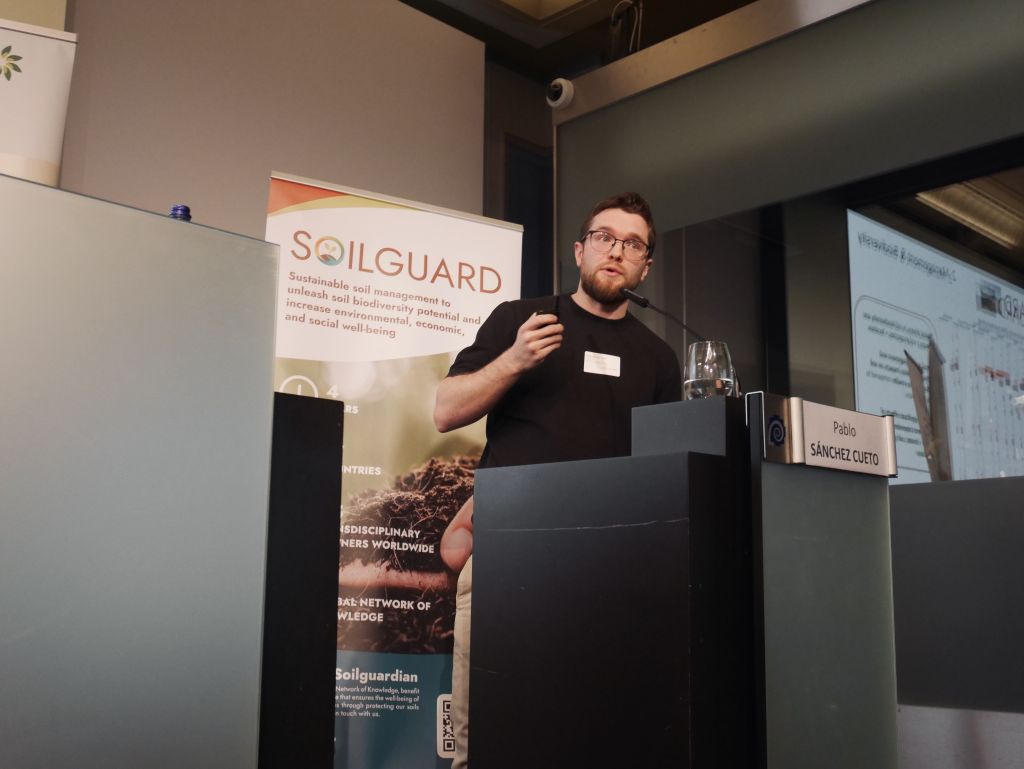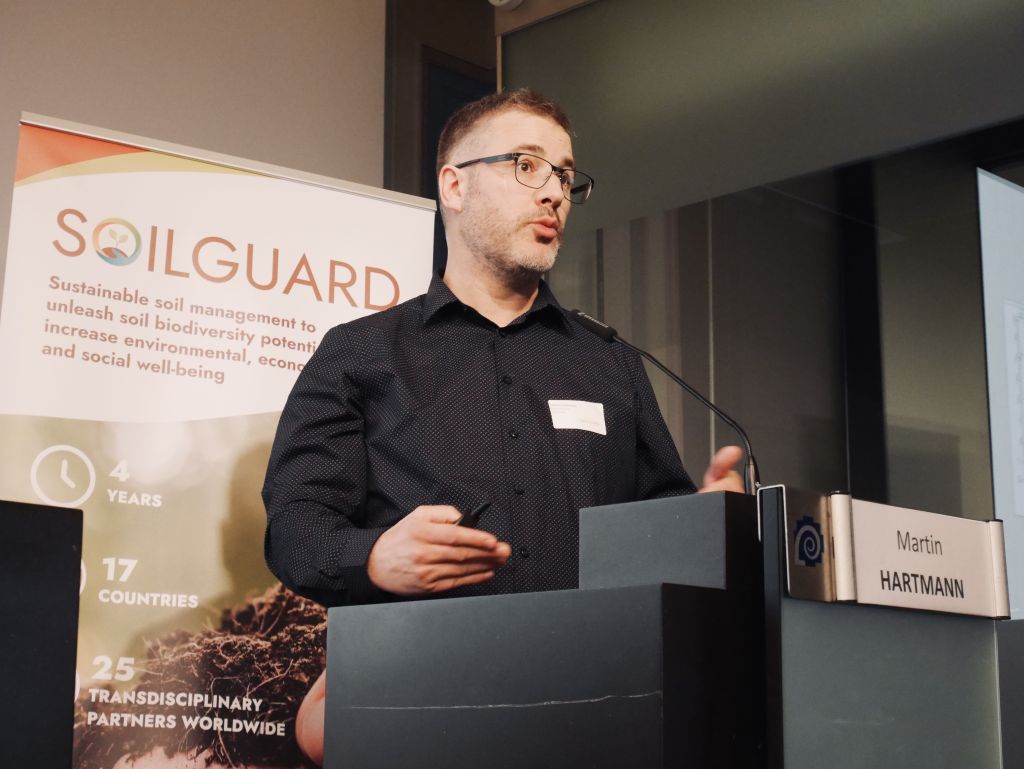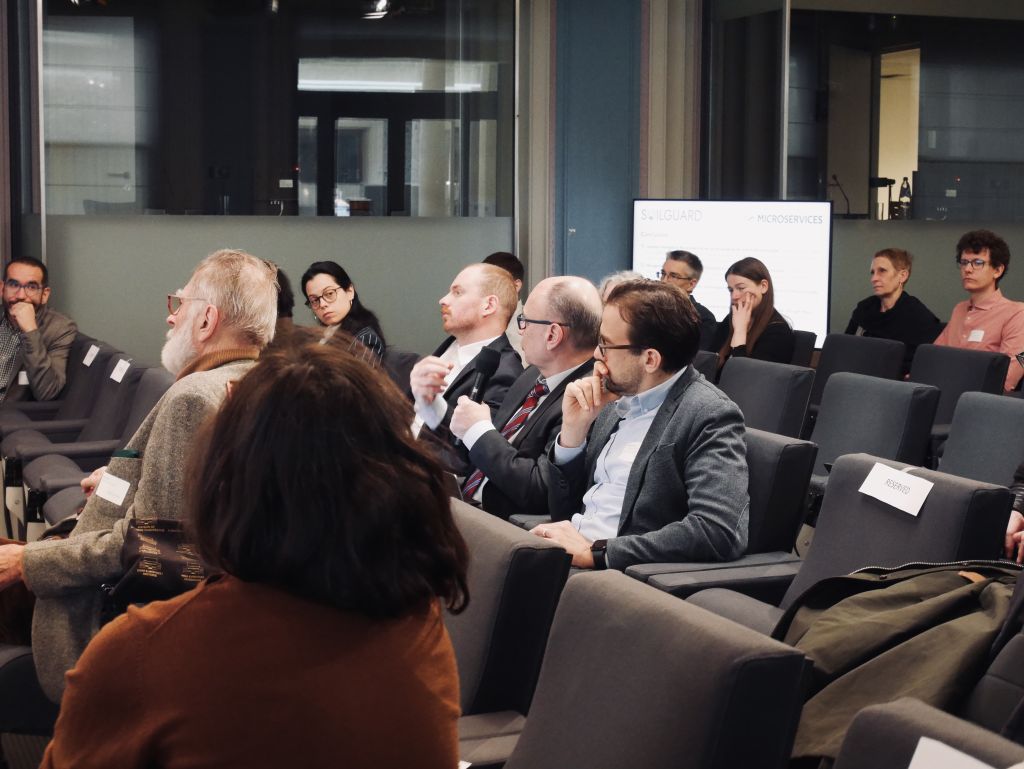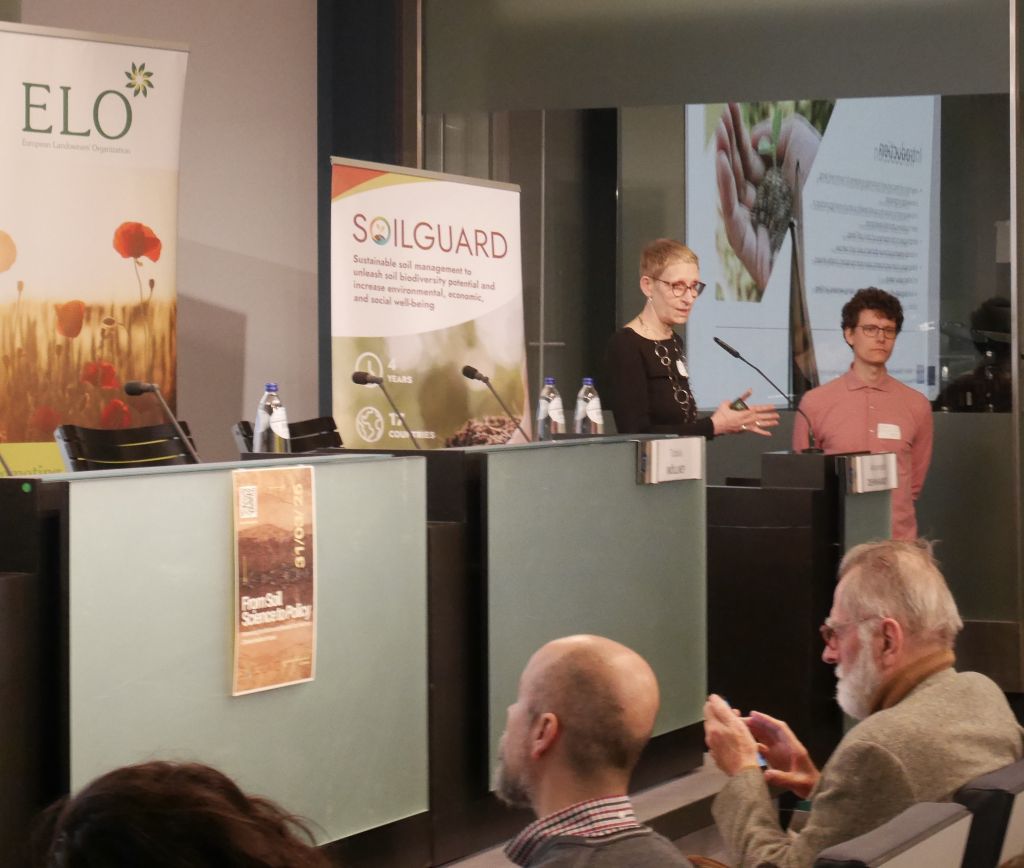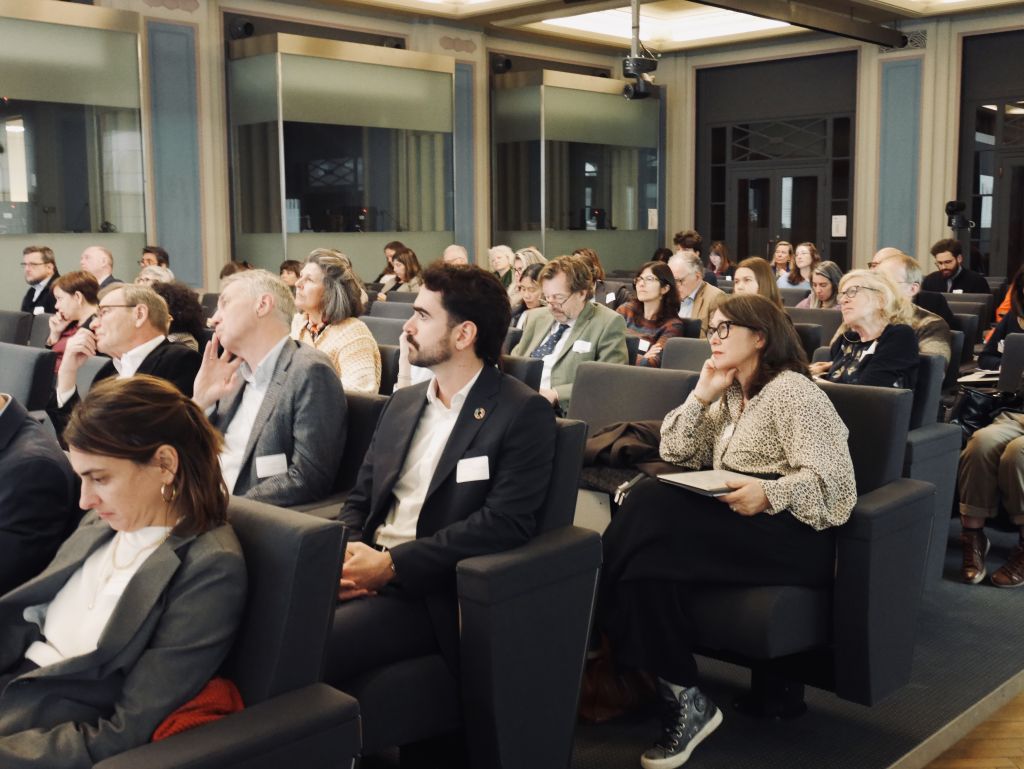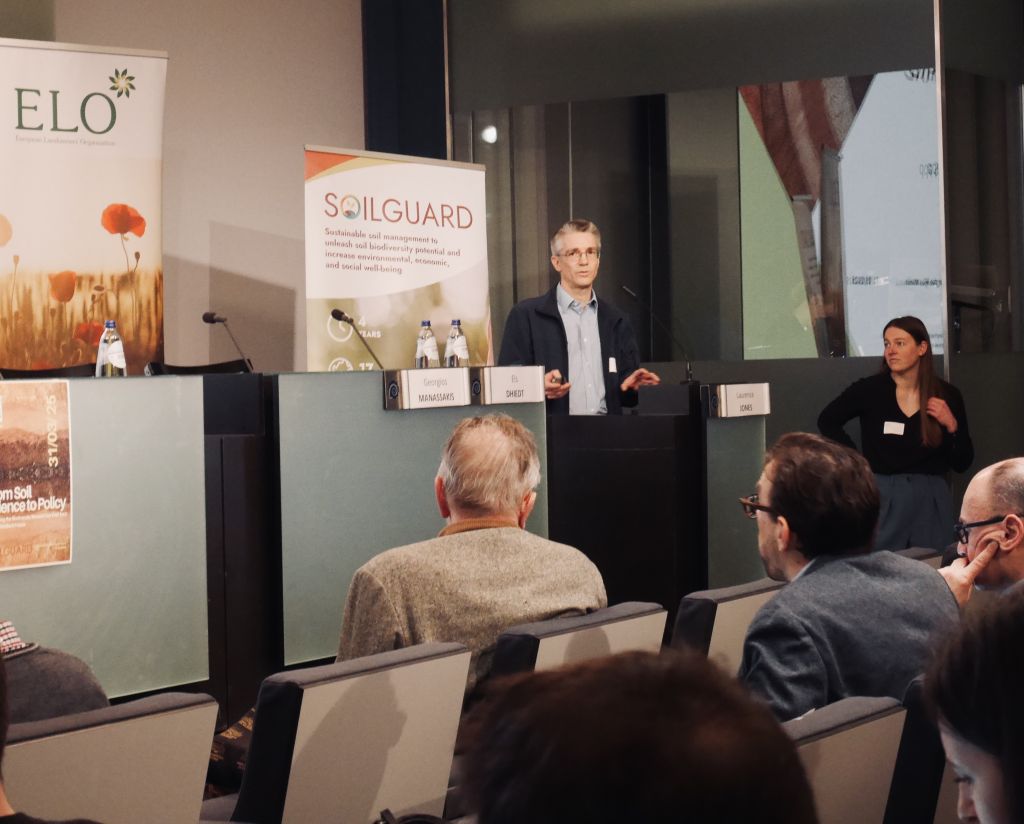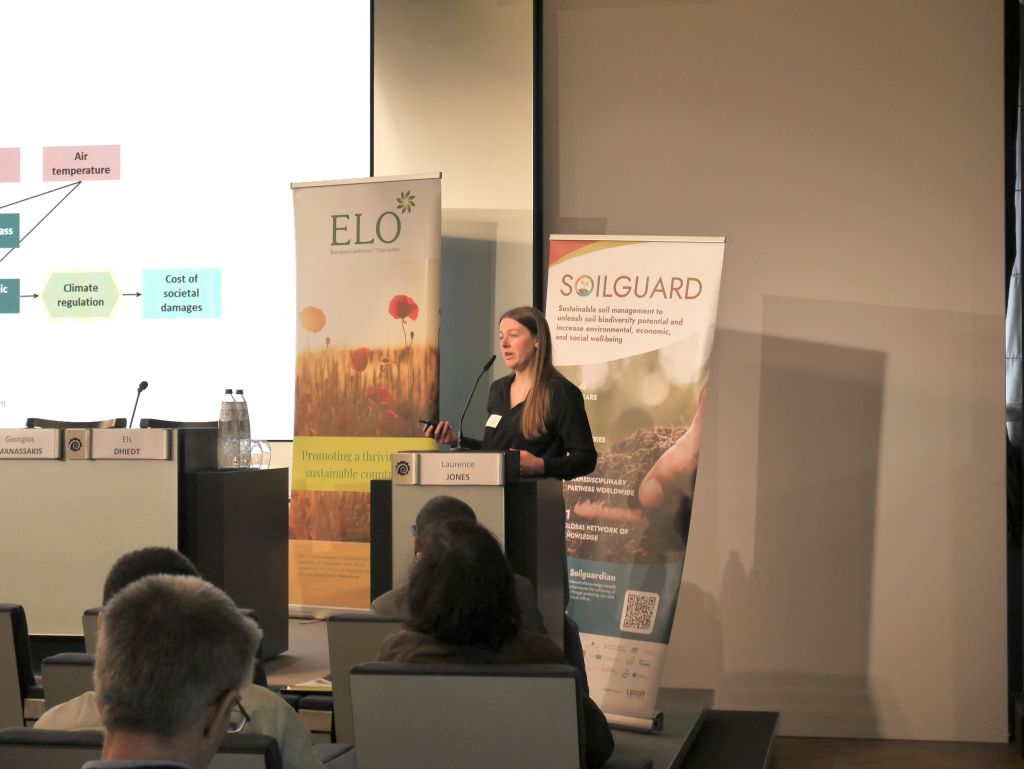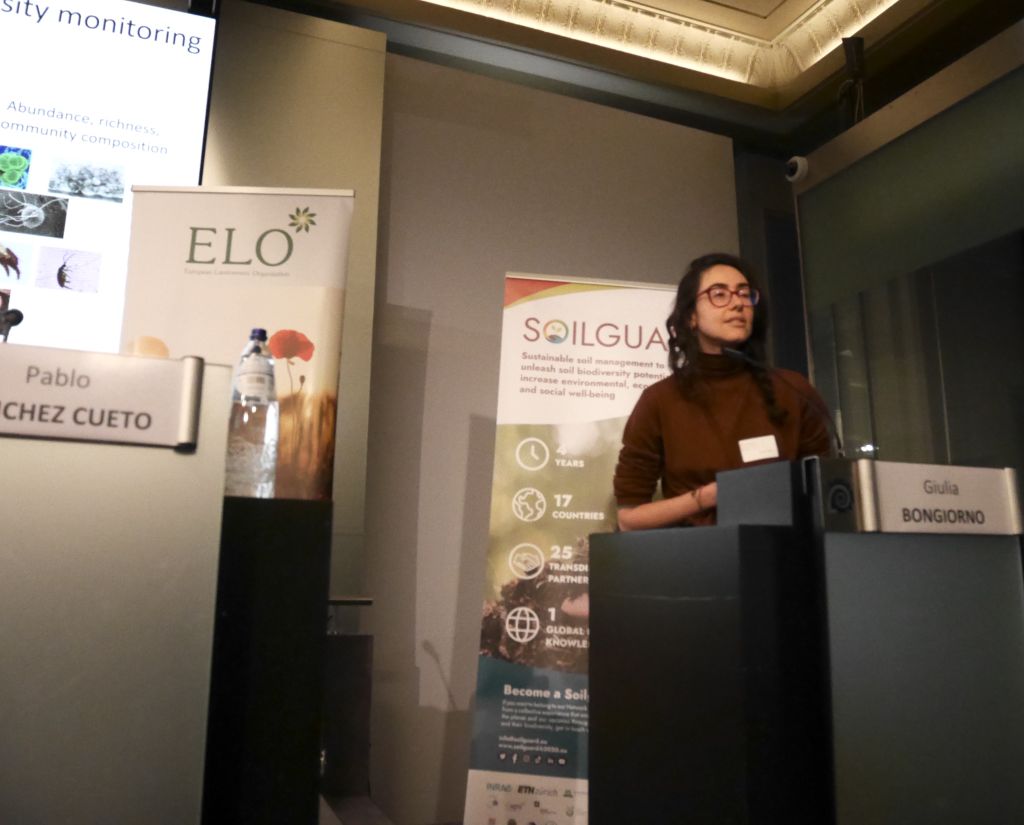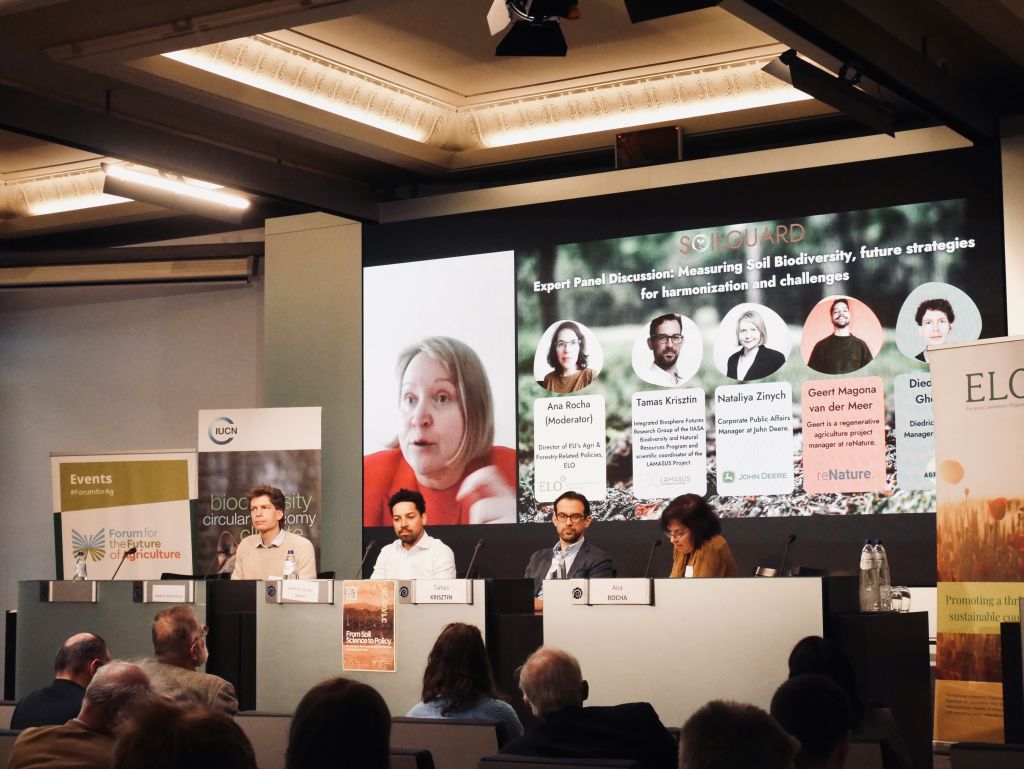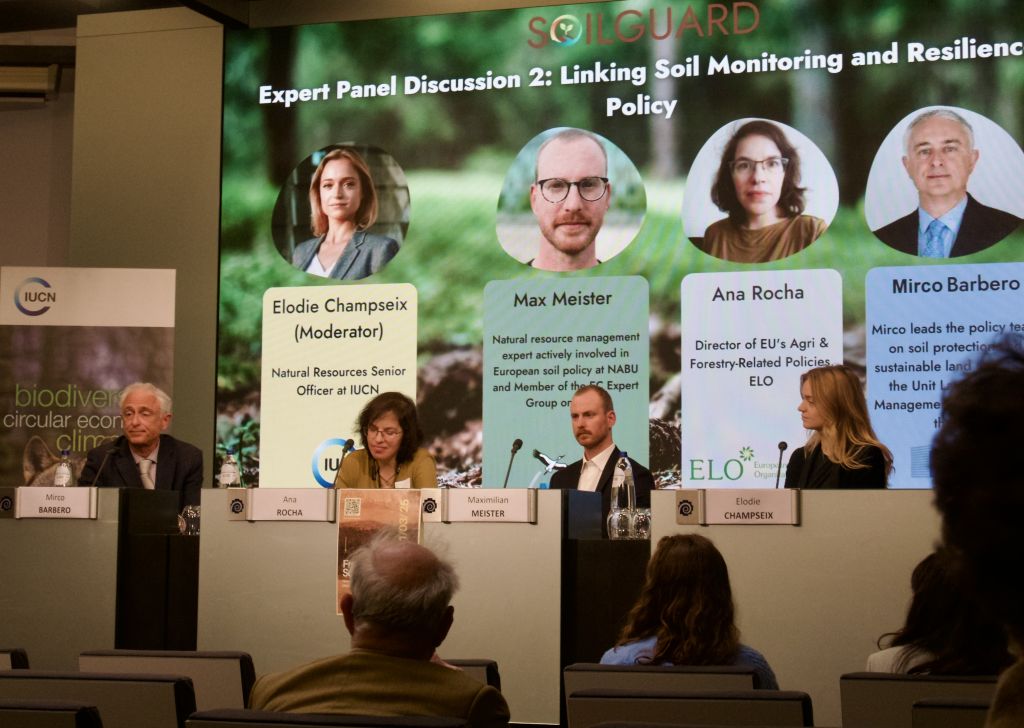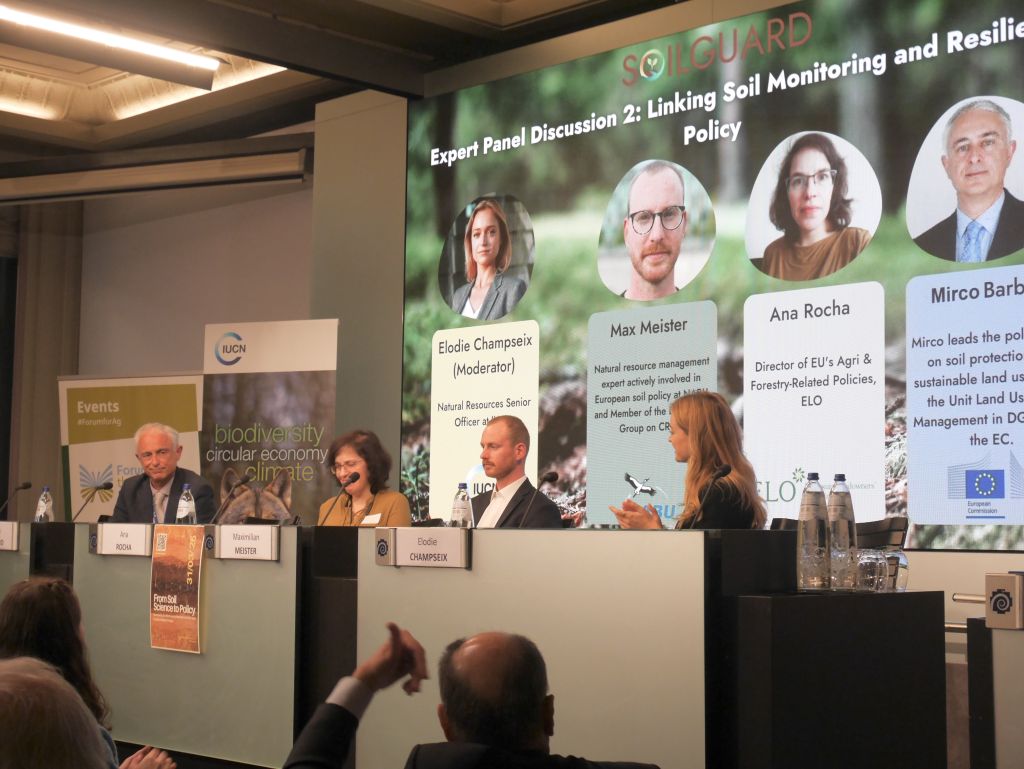From Soil Science to Policy
Harnessing the Biodiversity Beneath Our Feet for a Climate-Resilient Future
Key Research Messages presented by the SOILGUARD team:
Soil biodiversity varies greatly depending on local factors such as regional climate, soil characteristics, and geography. Recognising and respecting this variability is essential when designing management strategies.
Our findings confirm that promoting soil biodiversity doesn’t mean sacrificing productivity. Healthy soils can support both multifunctional ecosystems and sustainable crop yields.
High temperatures and aridity—especially in warmer seasons—are closely linked to biodiversity loss in croplands. Climate resilience must be central to future soil strategies.
Perceptions of how soil contributes to human well-being vary significantly across regions. This diversity of viewpoints must be factored into both scientific approaches and policy design.
One of our flagship innovations, the SoilGuardians App, empowers farmers to assess how their management practices impact soil biodiversity and ecosystem functions, bringing science directly into the field.
From Science to Policy, Bridging the Gap:
- Stronger EU-wide collaboration.
To scale successful soil health practices, we must better link existing networks and stakeholders, from researchers to land users to policy actors. - A robust science-to-policy interface.
Insights from research must be transformed into clear, usable, and timely guidance for farmers and decision-makers alike. - Recognition of long-term impacts.
Too often, short-term needs overshadow the long-term consequences of land management choices. Both science and policy must address this imbalance.
What Our Guests Said:
“Now that we are looking more into the Soil Biota, your project is a key project.”: Recognition from policy experts confirmed the relevance of SOILGUARD in today’s shifting environmental landscape.
“As a policymaker, I need to identify the difficulties in monitoring soil biodiversity. I need to know what good practices are, how to incentivize their adoption, and how to assess what’s working.”
“Policies rely on indicators—especially the essential question of whether there’s a direct link between indicators and farmers’ practices.” Powerful reminders from Sophie Hélaine, Head of the policy performance unit in DG Agri.
“Put the horse in front of the cart.” Tassos Haniotis (Sustainable Productivity Adviser for the Forum for the Future of Agriculture and a Senior Research Scholar at the International Institute for Applied Systems Analysis): Adaptability needs attention when shaping soil health solutions and strategies.


